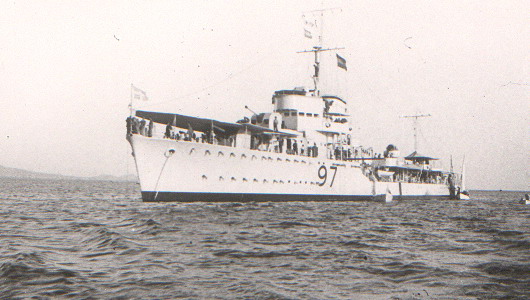
On the afternoon of April 22, 1941, during World War II, the destroyer of the Greek Royal Navy “Hydra” sank as a result of a German air attack in the sea area of Lagousa (Laoussa), a group of islands (Eleousa, Panagosa, Gaitosa, Panagrosa Kordeliaris) of the Saronic Gulf, between Aegina to the south and Salamis to the north. 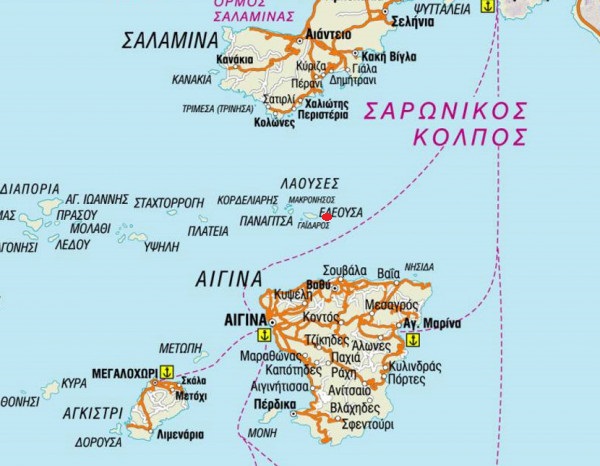
The “Hydra” D-97 (Dardo-type destroyer, made in Italy), the fourth ship of the Greek Navy with the same name, was on duty in the afternoon of April 1941.
More specifically, she was at sea going to Fleves island, having been ordered to accompany, together with the submarine “Papanikolis”, a Danish cargo ship loaded with ammunition, first to Souda and then to Alexandria, Egypt.
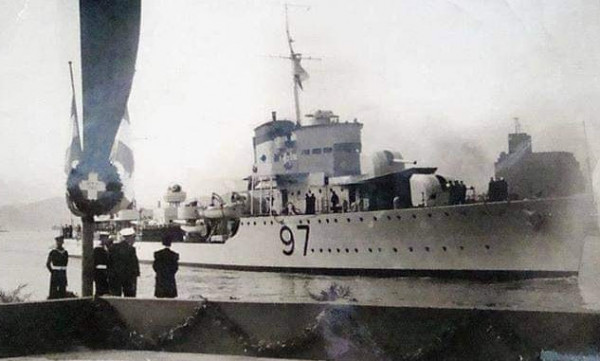
The Greek destroyer was spotted at around 17:30 by a German reconnaissance aircraft and then came under heavy attack by a large number of Junkers Ju 87 dive bombers, commonly known as Stukas.
The 35-40 German dive bombers, making constant use of their machine guns and bombs, wreaked havoc and destruction in just a few minutes, causing the two of the three anti-aircraft guns of the Greek destroyer to go out of action almost immediately and filling the deck with dead, mutilated and severely wounded sailors.
Finally, the destroyer of the Greek Royal Navy, immobilized due to mechanical damage and having received heavy blows from the enemy, sank at 18:04 (about fifteen minutes after the start of the air attack) near the lighthouse on the island of Eleousa.
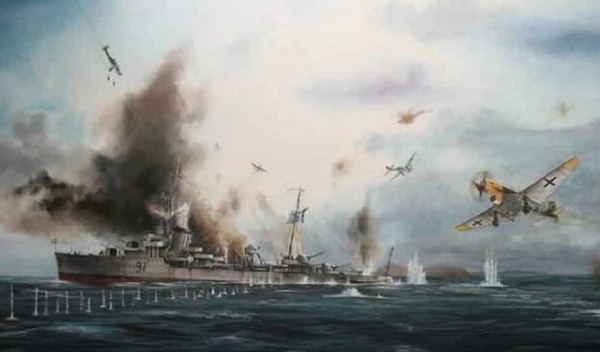
Shortly before the ship sank, an order was given to abandon it. Some of the seriously injured boarded a small boat, some others wore life jackets and dove into the sea, while others, who were able to do so, swam to the islet of Eleousa.
The human losses were unfortunately very large: 42 dead, including the governor of “Hydra”, Lieutenant Commander Theodoros Pezopoulos (one of the first to fall), and first mate Captain L. Vlachavas, and many dozens of wounded, many of them with severed limbs.
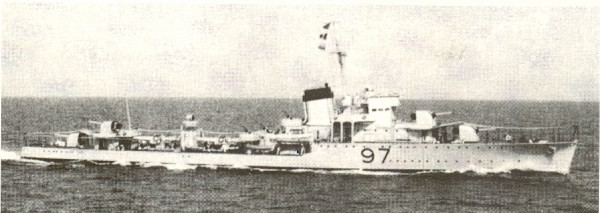
After the end of the German attack, the wounded were transported by the torpedo boat “Kios” and fishing boats from Aegina to the Naval Hospital of Aegina, with the aim of providing immediate assistance and dressing.
As for the shipwreck at the bottom of the Saronic Gulf, it was sold after the war and so most of the ship was “cut”, lifted and sold as metal. A small part of the bow and a few more remains is what is left in the waters of the Saronic Gulf from the “Hydra” D-97.
Latest News

WTTC: Travel & Tourism to Create 4.5M New Jobs in EU by 2035
This year, international visitor spending is set to reach 573 billion euros, up by more than 11% year-on-year

IMF: US Tariffs Shake Global Economy, Outlook Downbeat
IMF slashes global growth forecast to 2.8% as U.S. tariffs create uncertainty and ‘negative supply shock

First Step Towards New Audiovisual Industry Hub in Drama
The project is set to contribute to the further development of Greece’s film industry and establish Drama as an audiovisual hub in the region

Airbnb Greece – Initial CoS Ruling Deems Tax Circular Unlawful
The case reached the Council of State following annulment applications filed by the Panhellenic Federation of Property Owners (POMIDA)

Mitsotakis Unveils €1 Billion Plan for Housing, Pensioners, Public investments
Greek Prime Minister Kyriakos Mitsotakis has announced a new set of economic support measures, worth 1 billion euros, aiming to provide financial relief to citizens.

Alter Ego Ventures Invests in Pioneering Gaming Company ‘Couch Heroes’
Alter Ego Ventures' participation in the share capital of Couch Heroes marks yet another investment by the Alter Ego Media Group in innovative companies with a focus on technology.

Corruption Still Plagues Greece’s Driving Tests
While traffic accidents continue to claim lives on Greek roads daily, irregularities and under-the-table dealings in the training and testing of new drivers remain disturbingly widespread

Pope Francis Died of Stroke and Heart Failure Vatican Confirms
As news of the official cause of death spread, tributes poured in from across the globe. The 1.4 billion-member Catholic Church is united in grief, remembering a pope who championed inclusion, justice, and compassion

Increase in Both Museum Visits, Revenues for 2024
As expected, the Acropolis was the top archeological site in the country, followed by Sounion, Mycenae, the ancient theater of Epidaurus, and Vergina in northern Greece

Where Greece’s Tourists Come From: A Look at 2025’s Top Visitor Markets
The United Kingdom continues to hold the top spot as the largest source of incoming tourism, with 5.6 million seats booked for Greece this summer — up 2.2% from last year. This accounts for 20% of all international air traffic to Greece
















![Ξενοδοχεία: Μεγάλο το ενδιαφέρον για επενδύσεις στην Ελλάδα – Η θέση της Αθήνας [γραφήματα]](https://www.ot.gr/wp-content/uploads/2025/03/Athens-hotels-90x90.jpg)








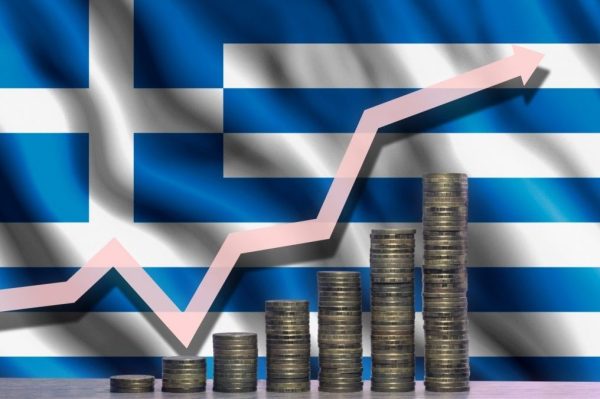







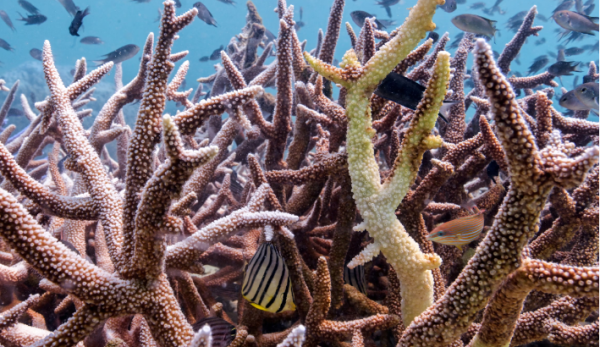







 Αριθμός Πιστοποίησης
Αριθμός Πιστοποίησης